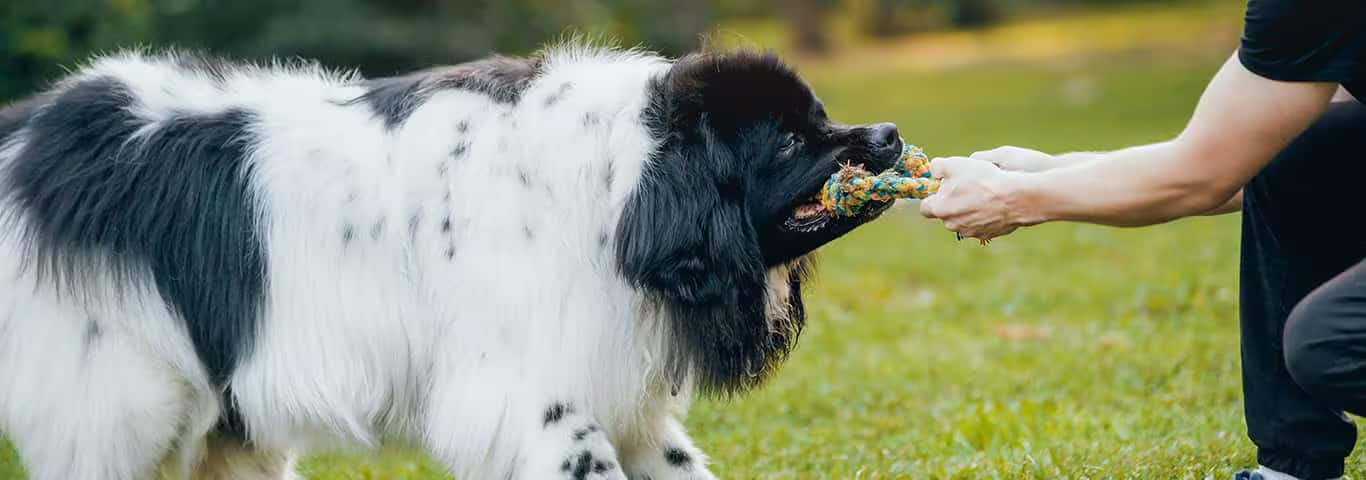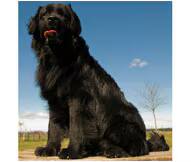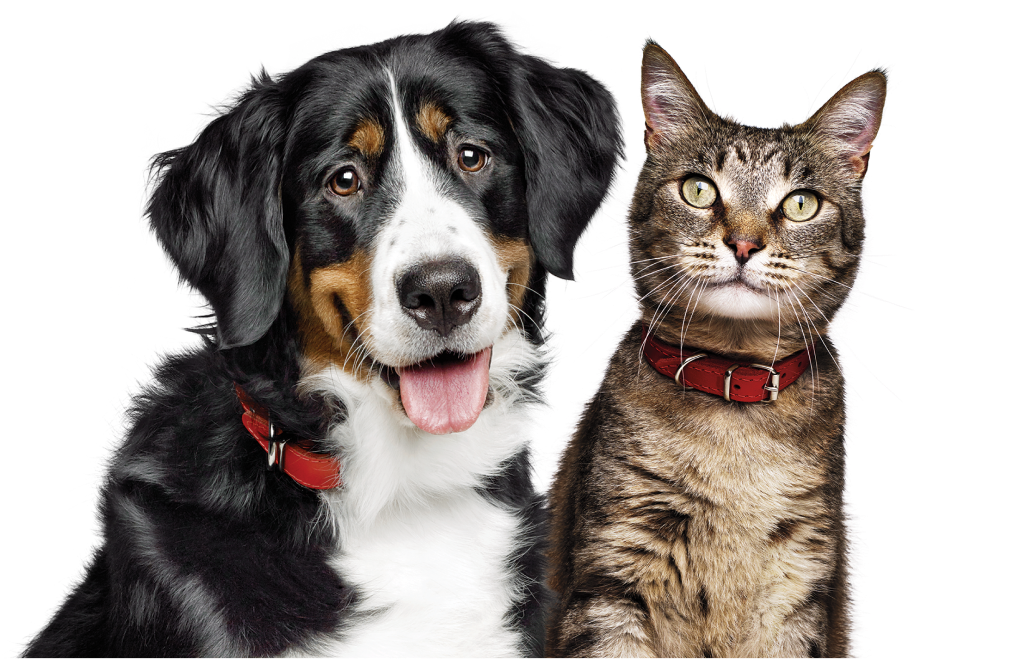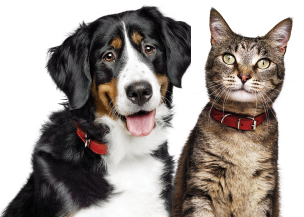About
The male is 71cm tall and weighs from 59 to 68kg. The female is slightly smaller at 65cm tall and 45 to 54kg. The outer coat is coarse and flat and has an oily, water-resistant quality that is perfectly suited to their strong desire to be in the water. The undercoat is soft and dense and requires daily brushing; they shed excess hair year round. Newfoundland colours are black, black with white, and brown with white splashes on the chest and tail tip.Newfoundlands have a broad, massive head with small ears that lie close to the head. Their feet are wide with webbing between the toes for swimming.|
Personality
Despite the size of the Newfoundland, this dog is rather docile and can happily adjust to living in the house. They do need considerable space for exercise and ideally should have safe access to water. The breed is watchful and trustworthy, and tolerant of the behaviour of children. It is said that author J.M. Barrie based "Nana" in Peter Pan on his own Newfoundland.Newfoundlands are protective, known to put themselves physically between their family and any stranger. They are not barkers but will show themselves to be watchful and willing to protect. An intelligent breed, the guardians of Newfoundlands often tell of their dogs alerting them to a fire in the home as well as rescuing them from their own swimming pools.
What to Expect
The Newfoundland has a sweet disposition and is at home on land or in the water. The dog is an ideal companion for one person or a family, but the size of the Newfoundland should be taken into consideration. The adult Newfoundland does not require a great deal of exercise but can easily become a couch potato. They should be allowed daily walks, a run in the garden or especially a swim to keep fit. Extra weight can shorten the already short life span of a Newfoundland, usually 8 to 10 years.As with any large breed, a Newfoundland requires plenty of food during the first year of growth. They literally gain 45kgs in the first year! After that, however, their metabolism slows down, and they do not require nearly so many daily calories. A lean Newfoundland is definitely healthier than one with extra weight.Newfoundlands are friendly dogs who love to keep you company. However, they do shed and are prone to drool on occasion. Grooming is important for this breed, both for their comfort and health. The coat needs to be brushed regularly to remove dead hair, and nails should be kept to a short length. Regular nail trims will help to keep the feet from splaying, since they do have to support a heavy load.
History
Developed on the island of Newfoundland, this breed is a remarkable swimmer with a history of performing incredible water rescues. The specific ancestors of this breed remain unknown, although it may be related to the Pyrenean mountain dogs that accompanied fishermen in the area. In the 18th century, the Newfoundland was sent to Britain and France and quickly became popular with the English sailors as a ship dog.The breed is well renowned for their ability to perform water rescues.As a ship dog, the Newfoundland's job was to swim ashore with the line from the ship, establishing a connection with the help on shore. The Newfoundland was such a powerful swimmer that they could also haul a small boat to land.One Newfoundland ship dog is credited with diving off the deck of a boat in the dark and rescuing Napoleon Bonaparte after he had fallen into the water!
Adopt a pet. Change a life.
Are you prepared to adopt a pet? Use these tools to make sure you are ready for the commitment.
Adopt a pet. Change a life.
Are you prepared to adopt a pet? Use these tools to make sure you are ready for the commitment.























